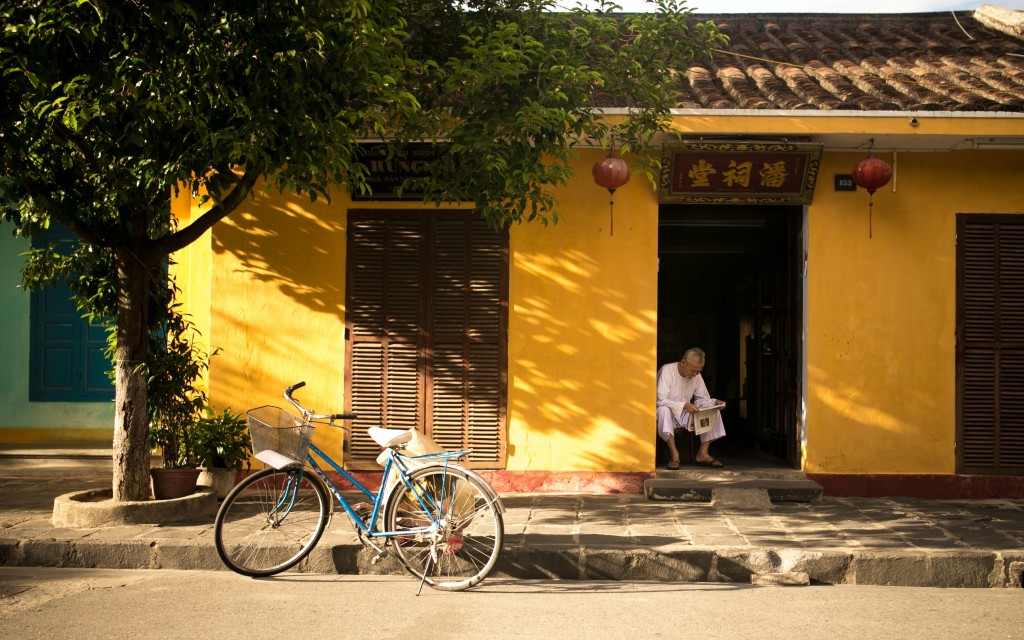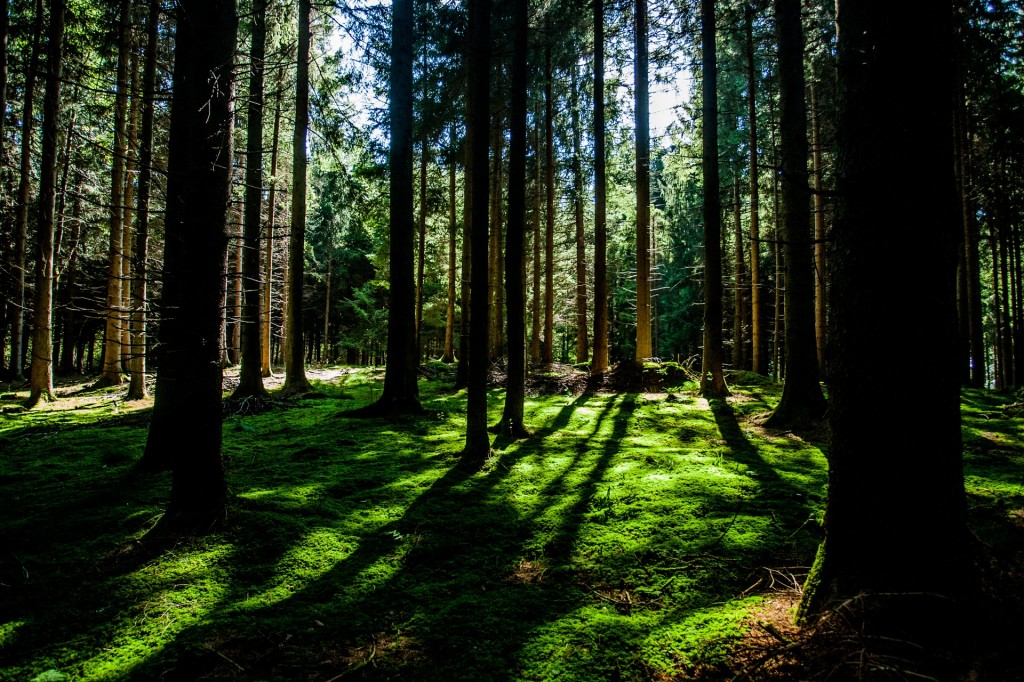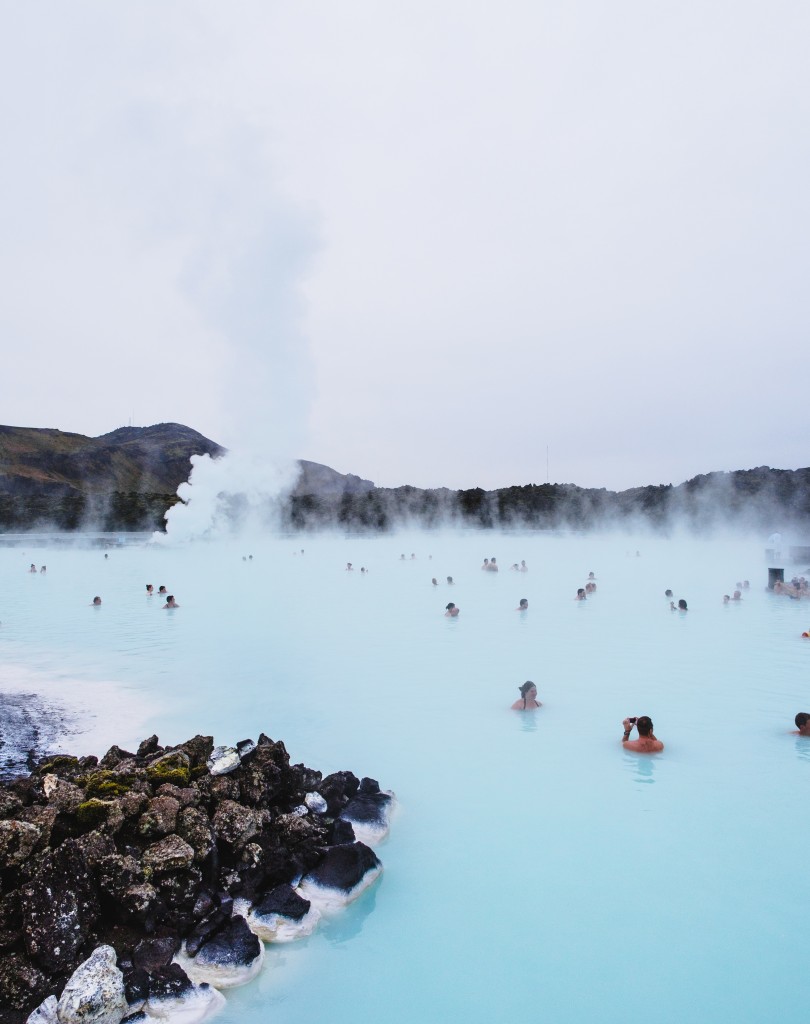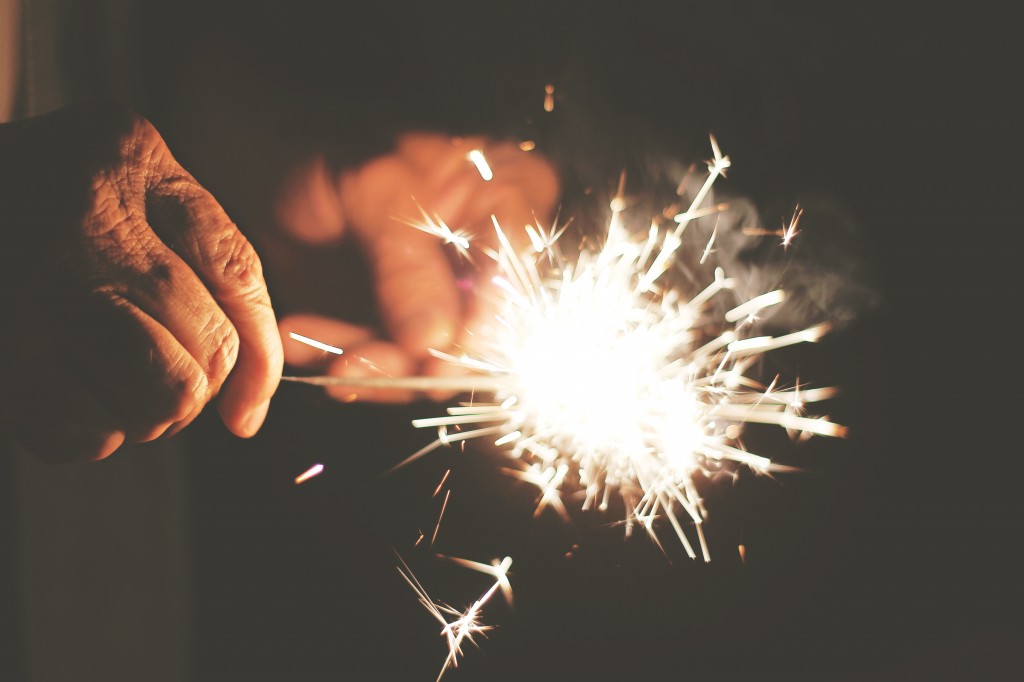In yoga there is a concept of santosha, or contentment that I’ve always struggled with. I am rarely content with what I have and am usually focused on what’s next as opposed to what is. This week I had two interactions that brought some perspective.
When I flew back to the West Coast a couple of Saturdays ago, I started chatting with the guy next to me. I asked him if he liked where he lived and the answer was, “No.” When I asked him why he’s lived there so long he said because of his job. In that moment, I felt a swell of gratitude and contentment.
My gypsy lifestyle is not without its challenges (hello moving more times than years I’ve been alive), but the one thing I will say is if I’m unhappy in a place I’ll move. I’d much rather take a chance on an uncertain future than a discontented secure one. I love that about myself. I appreciate the fact I’m willing to take a risk, to do the scary thing, in the hopes it will pay off.
In this same conversation, my seatmate asked me if I traveled much. My curt reply was, “Yes.” It got me thinking about all the places I’ve been lucky enough to see in my life. Usually I’m comparing myself with others and coming up short. I’ll think to myself, “Yeah, I’ve traveled a lot, but I haven’t traveled as much as so-and-so,” or, “Yeah, but I haven’t been to _____.” I’m constantly striving ahead instead of being content with what I have. In that reflective plane ride, I felt appreciation for the places I’ve seen, and the places I’ve lived.
A few days after I arrived, I got my haircut. The hairdresser started telling me about her life and I was again amazed to hear about someone’s life that is so different from mine. She’s 23 and has never lived anywhere else. She’s barely left the state. She also told me about her sister, who is close to my age, and has the sort of life I thought I would have at 30: married, owns a house, possibly babies in the future. Her sister also hasn’t left the state or lived anywhere else. In that moment, I peeked into the life of someone else and found that in fact I am content with my own.
What I am getting at here, perhaps poorly, is that so often I look at what I don’t have, how my life doesn’t look the way I think it should, and I forget to remember what’s great about it. And I don’t mean the things we’re all grateful for – a place to sleep, enough to eat, great friends – I mean the character traits I possess, the way I choose to live my life. I see possibilities of other ways of being and I feel content because despite everything, life is pretty good.
I dream of a world where we’re all able to cultivate contentment for ourselves. A world where we want what we already have. A world where we take the time to pause and congratulate ourselves for what we’re doing right. A world where we have santosha.
Another world is not only possible, it’s probable.
I am obsessed with “the truth.” Maybe it’s a hallmark of being a journalist, but I’m constantly searching for “the Truth” with a capital T. When people throw out platitudes like “the truth is relative,” and “everybody has their own truth,” I’m unsatisfied because why? Why is the truth relative? Why does everyone have their own truth?
Last week, I wrote about logic versus intuition, and defined intuition as a reflection of consciousness. I also said perhaps the reason why intuition can be wrong is that the reflection isn’t clear and maybe it’s like smudges on a mirror.
This week I did some more investigation because I wasn’t fully satisfied with that answer. My spiritual teacher says there are “layers of the mind” and this affects the different ways in which humans operate. One layer is responsible for satisfying what we sense through the body. So, for instance, if I’m cold and reach for a blanket, that’s one layer of the mind. Another layer of the mind deals with conscious thought like problem-solving and intellectual reasoning.
The layer I’m interested in at the moment is the layer where intuition comes in. My teacher uses a Sanskrit word that I am sure to mispronounce, but the English translation is “supramental” or “higher mind.” This is the layer responsible for scientific discoveries and creative insight. When the lower levels of the mind are quiet, the higher mind comes through. This is what Michelangelo is referring to when he likened the creative process to “a seizure of the soul” or when Albert Einstein said in reference to discovering relativity, “There is no logical way to the discovery of these elemental laws. There is only the way of intuition.”
So what happens after the message gets delivered, if you will? When a person gets an intuitive hit, it still has to filter through their mind and sift through biases and experiences, aka, the smudges on a mirror. That explains why the truth is relative – because each person has their own experiences and biases the intuitive message is coming through. For each person, the reflection of consciousness looks a little bit different.
That means there is an absolute truth, but I am not able to access it because my mirror is too dirty. The quickest way to clean the mirror, according to my teacher, is to meditate because meditation silences the lower layers of the mind and allows a person to access the higher ones. If you can believe it, the layer where intuition lives is not the highest layer of the mind! The higher layers are ones where duality ceases to exist and a person sees everything as an expression of Spirit. But that is perhaps another post for another time.
I dream of a world where we all quiet our minds and allow something greater than us to come through. A world where we understand that behind the relative truth is an absolute truth that maybe we can’t quite see. A world where we each seek to know that absolute truth and arrive at those higher layers.
Another world is not only possible, it’s probable.
I’ve been thinking a lot this week about logic and intuition. I notice that for the most part people seem to advocate one or the other.
On the logic side, science and rationality are worshipped. Some people disregard anything that cannot be proved scientifically. If there’s no randomized controlled trial, the thing is full of crap. This is why people say homeopathics are snake oil, despite the loads of anecdotal evidence that say otherwise. Maybe what’s happening is our scientific instruments aren’t sensitive enough yet to measure homeopathics.
Also, the thing about randomized controlled trials is they’re imperfect and there is often conflicting evidence. In radiology, for instance, a subject I am very familiar with as writing about CT scans, MRIs, and ultrasounds is my primary source of income, there’s a huge debate about breast cancer screening. A study from Canada recently stated breast cancer screening causes more harm than good. The researchers argue breast cancer screening leads to overdiagnosis, or diagnosing tumors as cancerous that may not become problematic. In other words, diagnosing cancer too much.
On the other hand, there are also randomized controlled trials stating the opposite, that breast cancer screening causes early diagnosis, i.e., catching a cancer early, and not overdiagnosis. Advocates vehemently argue the true harm to women is from these scientific studies that scare women into believing they don’t need their regular mammograms. Who is right?
For those who eschew science and rationality, there’s a belief in the infallibility of intuition, that intuition is always right. Except, that’s not always true and not everybody’s intuition is equally valid. How many times have we watched a contestant on The Bachelor declare they know they’ll receive the final rose? That “their gut” tells them they’ve found the love of their life and then the person ends up being wrong? Clearly there’s something going on here.
My spiritual teacher defines intuition as a reflection of Consciousness, or Spirit. He also says that meditation leads to a clearer reflection of Consciousness. In that context, it makes sense why people can be off when they say they’re using their intuition; either the person is really tapping into their ego, or their reflection to Consciousness isn’t clear. Perhaps it’s like a mirror and some people have smudges all over it so they can see some of the reflection but not all of it.
I have a tendency to completely accept something a person says if they say it came from their intuition, especially if it can’t be scientifically proved. However, people, me included, are wrong sometimes! I have a brain so I need to use it!
My spiritual teacher also says:
The highest treasure of human beings, distinct from other creatures, is their intellectual superiority. Had there been no intelligence in humans, they would hardly be different from other animals. This philosophical consciousness will lead humanity to greater intellectuality. And this constant pursuit of intellectuality leads one to its furthest limit, where intuition begins. – Shrii Shrii Anandamurtii
Intuition is valued, of course, but so is intellect. Maybe it’s time I start using both logic and intuition. Maybe we all need that integration.
I dream of a world where we don’t accept something as true just because someone said they had a feeling about it. And at the same time, I dream of a world where we understand some things are beyond logic, some things don’t make sense and they may never will. A world that’s not logic versus intuition, but a world that relies on logic and intuition.
Another world is not only possible, it’s probable.
The other day a friend and I started to watch an HBO show called Enlightened. The basic gist is a woman has a nervous breakdown and goes to Hawaii to get her health back. She returns to her normal life and is struggling to implement all the new things that she learned like daily meditation or giving up her destructive habits. She often gets frustrated and stops. Throughout the show I kept saying, “That woman needs some friends!”
I think often when it comes to changing a habit, belief, or behavior, there’s an idea that willpower will be enough. That a person can, and should, be able to tackle the issue on their own. I think that’s why the self-help market is so huge – people want to change and believe that desire is all they need. In my opinion, that desire or determination is the first step. What solidifies a habit, belief, or behavior (besides repetition) is support.
The reason I kept yelling at the TV screen that the main character needed some friends, is because it’s hard to change. No epiphany there I’m sure. We already know this. We hear about it all the time when it comes to exercise. In fact, I just turned in an article on Friday in which several gyms and personal trainers all told me the latest trend is personal training in groups of three to five. When a person is working out with their friends they’re more likely to go to the gym because there’s accountability, and because it’s more fun. I’ve found the same is true with the internal changes.
In Sanskrit there’s a word for this: satsaunga, or good spiritual company. Usually it’s thought of in terms of who we hang out with, but I think it’s important not just for who we have fun with, but who will help us in life. One of the most useful things for me has been learning who to talk to about what. Some friends are good for their light-heartedness. Other friends I’ll call up if I’m feeling sad. I’ll talk to somebody else about my spiritual issues. There’s a saying I really like that applies: “Don’t go to the hardware store for milk.” Imbibing that saying has saved me a lot of frustration, that’s for sure!
Maybe I’m preaching to the choir here, but mostly I’m advocating when it comes to change, not doing it alone. Doing something alone will only get a person so far. When there’s the support of a community, when someone else knows about the changes you’re trying to make, that’s when they stick. And if I can broaden this a little more, the support of other people is also what ensures change in the greater world. In the West, we think in individualistic terms, but really, we are so much more than individuals. We’re like little droplets of water that when pooled together become a river. And a river eventually becomes an ocean.
I dream of a world where we encourage one another. A world where we support each other as we make positive changes in our lives. A world where we understand firm determination and willpower alone are not enough to wrest transformation, transformation requires a village. A world where instead of doing things alone, we do them together.
Another world is not only possible, it’s probable.
Audio at the bottom.
In about a month I’ll be 30. (One month!) Where I come from, i.e., the South, 30 means you’re married with a child or two and own a house. That is decidedly not my reality; in fact, I’m at the complete opposite end of the spectrum – single, childless, and not even an apartment, much less a house. This is not what I anticipated my life looking like. This is not what I expected for myself.
In October, a friend of mine turned 30 and when I voiced my own apprehensions about turning the big 3-0, she said, “Is life really so bad? Don’t you think you’ve lived well? Aren’t you pleased with the choices you’ve made?” I wouldn’t say I’m pleased, but I would say I think I’ve done the best I could with what I’ve been given.
It’s painful to grieve for the future that could have been, the Ghost of Christmas Future, if you will, but while I don’t have the house, the kids, or the partner, I still count myself blessed. I’m well-read, well-traveled, and well-loved. By that I mean I am loved by many near and far. I belong to several communities and each of those communities is filled with loving, generous people, for which I’m grateful. Their kindness has brought me to tears over and over again.
I also think about something another friend of mine said to me in college. When I told her someone called me nontraditional, she said, “According to whose traditions?” I love that because she’s right. Whose traditions am I adopting here? Whose expectations am I foisting upon myself? Is anyone except for me judging and criticizing my life for not looking a certain way? To be honest, I think most people are too consumed with living their lives to judge mine.
I also think about a passage that has resonance for me: “[M]y serenity is inversely proportional to my expectations. The higher my expectations … the lower is my serenity. I can watch my serenity level rise when I discard my expectations.” I’ve had many expectations for my life, how it will go, what I expect will happen, and all it has accomplished is to make me sad or frustrated. Perhaps it’s time to discard the expectations and instead trust that as someone said to me a decade ago, I’m nontraditional, and that means I get to make my own traditions.
This post is all about me turning 30, but I hope you find some relevance for your own life. Things rarely work out the way we expect or plan and when that happens, I hope you’ll join me in yelling, “Plot twist!” After all, what great adventure doesn’t have a few surprises?
I dream of a world where we discard our expectations and make our own traditions. A world where we realize our lives may not follow the path we had planned, but that doesn’t mean it’s a bad thing. A world where we accept the things we cannot change, have the courage to change the things we can, and the wisdom to know the difference.
Another world is not only possible, it’s probable.




